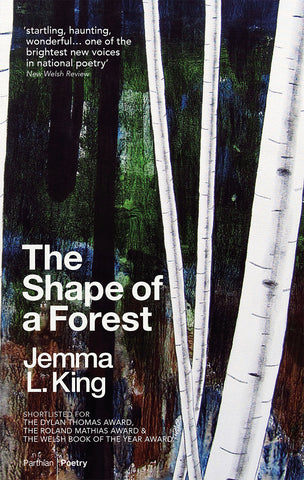Amelia Earhart
In 2010, a team of researchers from The International Group for Historic Aircraft Recovery discovered the remains of a 1930s female American castaway on the remote and uninhabited island of Nikumaroro in the middle of the Pacific Ocean. It is strongly believed that the castaway was Amelia Earhart, the pioneering female pilot who disappeared in 1937 whilst attempting to circumnavigate the world by air.
i
For someone so accustomed to speed,
silence and stillness was something.
It fell to a hum.
It widened.
First, an inventory of quiet invaded and took root.
Each variety lived
and sang one note.
But this shelf fell off, deeply,
plaintively cut to the igneous core.
The air plucked at bird string, marsupial chatter, and
tapped irregular fingers to it.
Each scrambled song an insult
to one who craved an engine and a wing.
At first, she went mad.
ii
The damning thing was
the finger bone. Hers, they said.
That and the pre-war American cosmetics.
Misplaced in a land without a metal press or edges,
nature powdered to a pigment,
or hands to press the buttons.
That, and the upturned oyster shells,
shallow buckets laid out in rows
to plug up the sand,
drain the sky, resist
the wretched equatorial
heat.
The desperation that brands the spot
where the star imploded
in the most sparse
edge of the galaxy. Unnoticed
surrounded by star birds and star crabs
caught in the gravity of their own orbits.
iii
The crabs ate her,
crushing the bones that
once hung bravery,
eyes that held the earth’s curve,
the heart that burst adrenaline
drilled it to the tips of grasping fingers
feeling life, even in the face of the spiked sea.
Electra’s crunch and spasm groaning.
The sea church settles and takes pity.
iv
Amelia fell upwards and
was laid like a pearl on the shoreline.
v
I imagine her whole and tanned,
her clothing dirtied but intact.
Her right hand loosely on her hip,
the other shielding squinting eyes
from sun which levels her up.
She looks out before looking in
to the mountain tip of her new island,
the horizon as empty as the stomach.
Birthdays pass, Christmases pass.
The slow collapse
into new years.
She’s stood there, blinking.
Shortlisted for The Dylan Thomas Prize 2013
These poems of desire, loss and revenge explore lives caught in the gravity of their own orbit.
Haunting, distinctive and sensual, debut poetry collection The Shape of a Forest has unblinking scope. This sophisticated debut collection moves from the historical to the contemporary: Genghis Kahn surveys his territory whilst Amelia Earhart disappears to myth. The Belvedere Apollo is dug up heralding the onset of The Renaissance as a tiger meets a foe in a Siberian Forest, the Pendle witches are hung in Lancashire, and in tsunami-struck Japanese gardens, South Sea islands and New York hotel rooms, lives are loosened like milk teeth.
The Shape of a Forest is a powerful survey of life and of human experience that spans centuries and the continents.
Jemma L King teaches literature and creative writing at Aberystwyth University where she also completed her doctoral thesis. Winner of the Terry Hetherington Award for young writers in 2011, she has published her creative and academic work internationally. She is a founding member of the Centre for Women, Writing and Literary Culture and is a reviewer of contemporary literature for numerous publications.
"The author of this powerful poetry debut...is one to watch closely ... The Shape of a Forest [is] both fleeting and resonant, both passionate and quiet, and I would advise you to get your hands on it" New Welsh Review
"The poet’s skill here and throughout is to use language sparingly, yet tugging at every chord...striking through pleasant frameworks so that, as poetry should, it begs us to question the ever-changing state of the world we share with the rest of nature." Wales Arts Review

